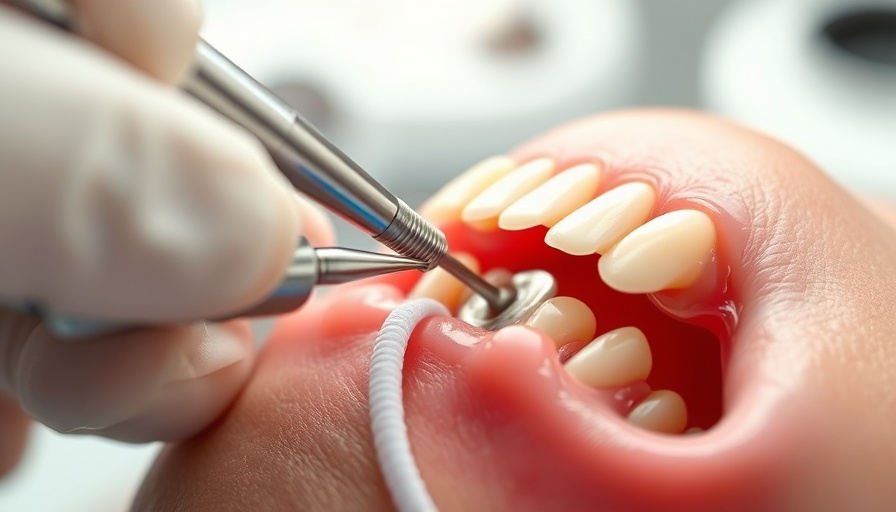
Unlocking the Benefits of Ozonated Water in Dental Care
Recent studies have sparked a conversation on the potential of ozonated water as an adjunct in periodontal therapy. This innovative approach is focused on harnessing the antimicrobial properties of ozone—an element that has steadily gained attention not just in medical fields but also in dentistry. Ozonated water, created by dissolving ozone gas in water, is believed to help in reducing the bacterial load in patients suffering from periodontal diseases.
Scientific Backing: Modest Gains but Worth Exploring
The latest research indicates that ozonated water presents modest benefits when used in the treatment of periodontal disease. This intrigues dental professionals who are always on the lookout for effective adjuncts in therapy. The study concluded that while ozonated water showed some degree of benefit, it should not replace conventional treatments such as scaling and root planing. Instead, it serves as an additional complement to overall periodontal maintenance.
Historical Context: Ozone in Medicine
Ozone has a long-standing history in medical applications, dating back to the late 1800s when it was used as a disinfectant. Its use in dental care, however, is more recent. Understanding this historical context gives depth to current research, illustrating a resurgence in exploring ozone’s therapeutic effects. As we look to modern advancements, this revival can lead to better patient outcomes and cleaner products in the healthcare industry.
Current Relevance: Tackling Periodontal Disease
Periodontal disease affects millions globally, leading not just to gum issues but also to other serious health problems. As dental professionals strive for innovative treatment modalities, the modest benefits of ozonated water present an exciting avenue to explore. Current research emphasizes the need for comprehensive approaches in managing periodontal health, urging professionals to consider adjunct treatments alongside established protocols.
Counterarguments: Evaluating Efficacy
While some dental practitioners embrace the possibility of ozonated water, others remain skeptical. Critics point to the modest results as insufficient for broad adoption. Furthermore, extensive clinical trials are necessary to fully understand the implications and safety of regular ozone exposure. Such debates are essential, driving the discourse on emerging technologies in dental practices.
Unique Benefits of Integrating Ozone
Incorporating ozonated water may offer unique benefits beyond basic anti-bacterial properties. For instance, it might reduce discomfort during standard dental procedures and promote healing. These potential benefits could improve patient experiences, making dental visits less daunting, especially for those with high anxiety levels related to dental care.
Insights for Dental Professionals
For dental professionals, understanding ozonated water's place in modern dental practice encourages a mindset focused on continuous learning and adaptability. Keeping abreast of innovations allows practitioners to offer comprehensive care while addressing patient needs with the most advanced techniques available. Ozonated water could represent a small yet impactful step in enriching periodontal therapy.
Future Trends: A Growing Interest in Ozone Therapy
As research into ozonated water continues, it's likely that we’ll see increased interest and potential applications in various fields of healthcare. The ideation of ozone therapies extends beyond dentistry, with possibilities in wound care and even cancer treatments. As we move forward, understanding the full spectrum of ozone’s potential can shape future therapeutic practices.
Conclusion: A Step Towards Innovative Dental Care
The exploration of ozonated water signifies a progressive shift in how dental care can evolve. With ongoing research and clinical trials, dental professionals and patients alike may find a new ally in the fight against periodontal disease. As we continue unraveling the science behind this innovative treatment, staying informed and open to these advancements is crucial for delivering enhanced dental care.
 Add Row
Add Row  Add
Add 




Write A Comment